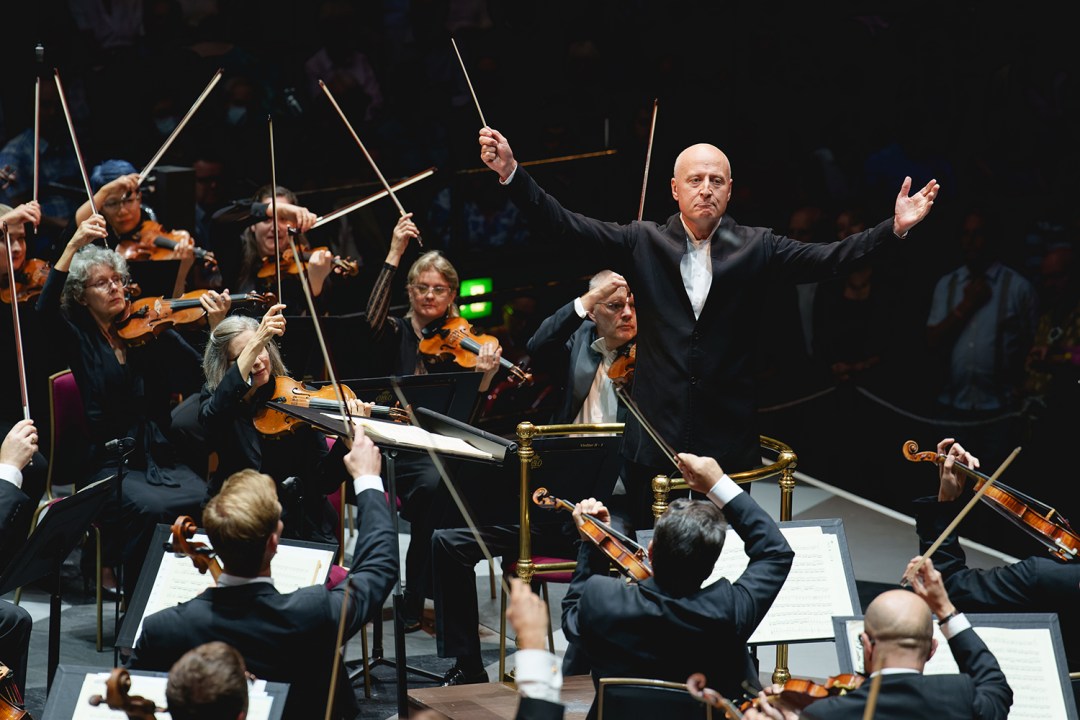A euphoric meat-and-two-veg programme: Tonhalle-Orchester Zürich/Paavo Jarvi, at the Proms, reviewed
Spectator
Richard Bratby
09.09.23
photo: Andy Paradise
We used to call it a ‘meat and two veg’ programme, back in my concert planning days: the reliable set menu of an overture, a concerto and a symphony. It was an unfortunate term. No artistic planner likes to feel that they’re playing it safe, still less (and sources report that this goes double at the BBC) that they’re giving the public what they want. Traditional formats, familiar warhorses, dead white males: yawn! Then Paavo Jarvi and the Tonhalle-Orchester Zürich rock up at the Proms with a Beethoven overture, a Tchaikovsky concerto and Dvorak’s New World symphony and what do you know? The Royal Albert Hall was packed.

We got pretty much the most euphoric sensation that the classical concert hall can offer
In fairness, it’s not every day that you get to hear Beethoven’s overture The Consecration of the House, though its late opus number (Op.124, so contemporary-ish with the Missa Solemnis) is a signal to expect something interesting. There are the necessary elements of ceremonial: slashing chords (the strings lifted their bows with a flourish) and fanfares, given a black marble gleam by the Zürich brass. But the body of the piece is a brilliant full orchestral fugue, and really, how often do you hear Beethoven do that? There’s the finale of the Ninth Symphony, true, and the so-called Grosse Fuge. But a fugue for the fun of it, like Mozart did in the overture to Die Zauberflöte – the human mind dancing before the Lord for sheer joy? There aren’t that many.
Anyway, there’s one here, and it gained immeasurably from, well, the BBC referred to the Tonhalle-Orchester’s ‘Swiss precision’, and there really was a certain clarity to the ensemble sound; not so much a question of transparency (there was no shortage of heft when required) but of discipline being brought to bear with absolute focus. The violins fizzed: none of your blowsy carbonated sparkle, but tingling méthode champenoise bubbles. Jarvi kept the lid on and let the energy build until we got pretty much the most euphoric sensation that the classical concert hall can offer – a virtuoso orchestra motoring along at just below boiling point, with all that potential bristling and tugging at the end of an incredibly taut leash.
A good start, then, and the Tchaikovsky Violin Concerto offered the piquant experience of a string section that, for needlepoint finesse, could give the soloist a run for their money – which, when the soloist is Augustin Hadelich, is saying something. Jarvi solved the conundrum with orchestral playing of chamber-music delicacy and softness. Hadelich stood out as if spotlit, though the overall effect was intimate. And Dvorak’s symphony sounded more than usually fresh and forceful, with an additional layer of sonic enchantment. The piece is full of colours that often sweep by unnoticed: a floating chord for double basses at the end of the Largo; a tuba that plays only 14 notes in the whole symphony, and a pair of cymbals that play only one. There they all were, quivering under the magnifying glass of the Zürich/Jarvi sound, while the chords that support the famous cor anglais solo were so hushed and tender that you held your breath. A formidable display of soft power.
Comments